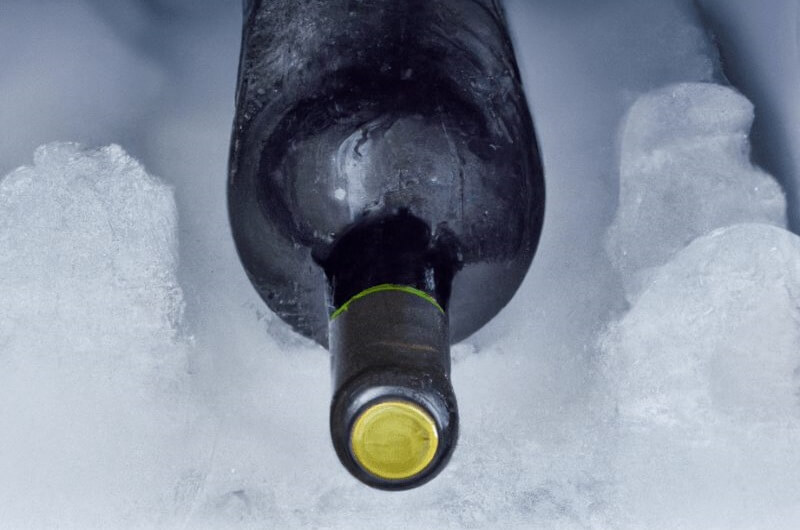Hey there, fellow wine enthusiast! We’ve all been there: bought a bottle (or a few) of wine, enjoyed half of it, and wondered how to best preserve the rest for another day. One common question that comes up is: can you freeze wine? If you’ve ever pondered this, you’re in the right place. Let’s dive deep into this frosty topic together.
Why Would You Want to Freeze Wine?
Imagine you’ve opened a bottle of your favorite wine, but there’s no way you can finish it in one sitting. You’re thinking of ways to extend its life. Freezing might seem like a logical solution. After all, we freeze food to make it last longer, so why not wine?
Making Wine Slushies and Desserts
Ah, wine slushies. Perfect for those hot summer days. There’s also the appeal of wine-infused popsicles or other delightful frozen treats. So, whether it’s for preservation or creation, the idea of freezing wine is definitely intriguing.
What Happens When Wine Freezes?
Wine is primarily water, alcohol, and a mix of other components like sugars, acids, and tannins. When wine is frozen, the water content starts to form ice crystals. But here’s the thing: alcohol has a much lower freezing point than water. This means that as your wine freezes, the alcohol remains liquid, leading to a separation of components.
The Impact on Taste and Texture
When the components in wine separate, it can affect its overall flavor and texture. The formation of ice crystals can dilute the wine, making it taste watered down when thawed. Moreover, the concentration of alcohol in the remaining liquid can make the wine taste stronger or more acidic.
The Bottle Conundrum
Expansion and Potential Breakage
First, let’s tackle a practical concern. Wine, like any liquid, expands when frozen. If you freeze wine in its original bottle, especially if it’s nearly full, there’s a risk the bottle could crack or even explode due to the expanding liquid. So, if you decide to freeze wine, ensure the bottle has enough space to accommodate the expanding wine.
Corked Wines
For wines sealed with a cork, freezing can push the cork out due to the pressure from the expanding wine. This might expose the wine to air, leading to potential oxidation which is a big no-no in the wine world. So, be cautious if you’re thinking of freezing corked wines.
Thawing the Wine: Do’s and Don’ts
The Slow Thaw
When you’re ready to drink the frozen wine, it’s best to thaw it slowly in the refrigerator. A slow thaw ensures that the wine’s components reintegrate as evenly as possible. Throwing it on the kitchen counter or submerging it in warm water can lead to uneven thawing and potential taste alterations.
Mixing it Up
Give your thawed wine a gentle shake or stir before pouring. This helps in mixing the separated components and offers a more consistent taste. But remember, be gentle; we’re not making a cocktail here!
Best Wines to Freeze
Whites and Rosés
Lighter wines like whites and rosés fare slightly better when frozen than their red counterparts. Their delicate flavors can sometimes even benefit from a slight chill.
Avoid Freezing Expensive or Aged Wines
Your vintage Bordeaux or pricey Pinot Noir? Please, for the love of grapes, don’t freeze them. These wines have nuanced flavors and delicate balances that can be easily thrown off by freezing.
Remember, while freezing wine can be a fun experiment or a short-term solution, it might not always be the best choice for preserving the true essence of the wine. But hey, if you’re making wine popsicles, freeze away!
Conclusion
Freezing wine is a topic filled with curiosity and sometimes necessity. While it’s possible, it does come with its caveats. The key is to know why you’re freezing it, what to expect, and how to do it right. So, next time you find yourself with an extra bottle, you’ll be equipped with the knowledge of whether to freeze or not to freeze. Cheers to that!
